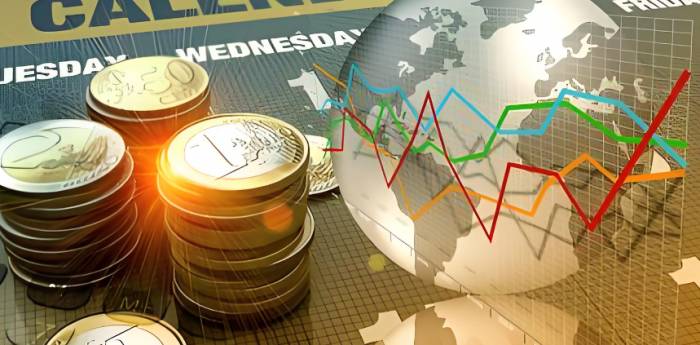Recently, the global capital market has been buzzing with debates over whether the U.S. economy will experience a "soft landing" or a "hard landing." However, the latest bank performance reports point to a new possibility: the U.S. economy may not "land" at all.
The term "not landing" typically refers to an economy that, after high growth, does not undergo the expected slowdown or recession but continues to maintain strong growth momentum. However, inflation levels are not effectively controlled, leaving the Federal Reserve with little room to lower interest rates. Stocks benefit from the strong economic performance on one hand, but are also suppressed by the rise in risk-free interest rates, resulting in a generally volatile trend.
Both JPMorgan Chase and Wells Fargo reported last Friday that credit card spending growth has slowed and credit card delinquencies have increased. For instance, JPMorgan Chase's credit card service sales (excluding commercial credit cards) grew by nearly 7% year-over-year, lower than the nearly 8% increase in the second quarter and more than 9% in the first quarter.
On the surface, this seems to indicate that economic activity is slowing down. However, JPMorgan Chase's Chief Financial Officer, Jeremy Barnum, believes that this is more a result of the normalization of consumption patterns after the pandemic, rather than a harbinger of economic recession. He added that while spending on travel and entertainment has fallen back, retail consumption remains robust, indicating that consumer confidence has not wavered.
Specifically, Barnum explained that after emerging from the difficult period of the pandemic, there has been a "significant shift" in spending on travel and entertainment. "Because people have been traveling a lot, they have booked cruises they never had before, everyone has been going out to eat frequently, and so on. This situation has now returned to normal."
Typically, a reduction in such expenditures could mean a shift from discretionary spending to necessary consumer goods, such as daily necessities like gasoline or groceries. This usually indicates that consumers are preparing for a worse economic environment.

However, JPMorgan Chase's consumer data does not show this. For example, the bank has not seen signs of weakness in retail consumption. Furthermore, Barnum stated:
"Therefore, overall, we believe that the spending pattern is robust, which is consistent with the solid consumer fundamentals and also aligns with the central forecast of the current economic 'not landing' scenario."
Similarly, bank executives believe that the increase in some credit card delinquencies can be traced back to the special period of loans issued between 2021-2022.
At that time, due to government stimulus measures and forced savings, many borrowers had an unusually ample financial situation. Under these conditions, some borrowers obtained credit that would be difficult to obtain under normal circumstances. But overall, Wall Street banks believe that the scale of these problematic loans is generally controllable.Wells Fargo CEO Charlie Scharf suggested on Friday that a slowdown in inflation and a decrease in interest rates will alleviate consumer pressure, particularly for those with lower incomes:
"The benefits of slowing inflation and the beginning of a decline in interest rates should extend to all customers, especially those with lower incomes."
It is worth noting that some media analysis suggests that an increase in credit card cancellation rates may also reflect a relaxation in the credit environment, which is conducive to economic growth. For instance, JPMorgan Chase has indicated that its expected net credit card cancellation rate for this year is around 3.4%, lower than its long-term target in underwriting new credit card debt. The media believes this implies that the bank can extend loans to a broader range of customers, or allow customers to borrow more, and still remain profitable even if the default rate increases slightly.
In light of these signs, both Wells Fargo and JPMorgan Chase continue to be optimistic about the growth prospects of the credit card business. JPMorgan Chase has told analysts that although lower interest rates may slow the bank's core net interest income in 2025, by mid-next year, the bank expects growth in revolving credit card balances to begin helping it grow again. To seize market opportunities, banks are launching new credit card products, such as Wells Fargo's recent travel rewards card in collaboration with Expedia.
Overall, the performance of some major Wall Street banks and the views of executives seem to suggest that the U.S. economy is in a state of "no landing." For example, as mentioned by Wall Street Journal, JPMorgan Chase has outperformed with both revenue and profits exceeding expectations. At the same time, consumer spending remains robust, credit conditions are moderately eased, and the anticipated relief in inflation and interest rate declines all provide support for the U.S. economy to "avoid landing."
However, analysts caution that it is still necessary to closely monitor the changes in future economic indicators to confirm whether this trend can continue. As the global economic situation continues to evolve, whether the notion of "no landing" can withstand the test of time remains to be further observed.